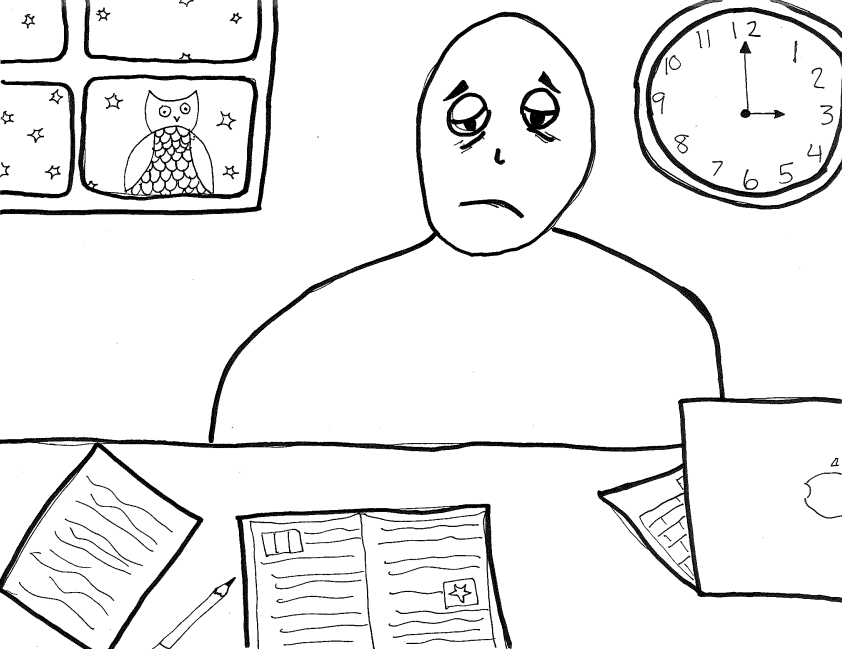Lack of Sleep Among Teens Should Be Taken Seriously
According to the 2018 Teen Health Survey, 26% of CRLS students reported getting at least eight hours of sleep on school nights.
May 2, 2019
Sleep: it’s one of the most essential parts of our day. It’s the time when the stress and demands of the preceding days and weeks can be temporarily ignored, allowing the mind to fall into a blissfully relaxed state. We all know the benefits of a full night’s sleep—feeling energized, motivated, and, in general, happier—but for many teenagers, the effects of sleep deprivation are known even better.
According to the 2018 Teen Health Survey, 26% of CRLS students reported getting at least 8 hours of sleep on school nights, with these reports decreasing by half between freshman and senior year—a loss of sleeping hours teenagers desperately need.
We see these effects among countless students each day: students are often up into the early hours of the morning completing assignments, either as a result of procrastination, extracurriculars, or other responsibilities. As this sleep deprivation progresses, one late night can turn into a week of lost sleep, until a student’s entire schedule is reshaped around going to bed late and waking up early.
Tired students are far more likely to be less engaged during the day, most notably during first period (where they may arrive late as a result of sleeping in), and their grades can suffer as a result.
Students who miss out on valuable learning time in class are far more likely to struggle on homework assignments or have additional make-up work to do and will be up late working to finish it, continuing this vicious cycle. Although recent studies have shown that “catching up” on sleep is impossible, students who get only a few hours of sleep each night might nevertheless sleep upwards of twelve hours on the weekends, leaving less time for homework assignments, which they will then stay up late completing.
But beyond tiredness, what are the other effects of chronic sleep deprivation? Many of the behaviors commonly associated with “teen angst,” such as mood swings, extended sleeping hours, and rash behavior, can, in fact, be explained by a single factor: tiredness. Dr. Ryan C. Meldrum of Florida International University found that lack of sleep can significantly decrease an individual’s ability to self-regulate their emotions and impulses—something that can lead to aggressive outbursts and issues with attention. Furthermore, sleep-deprived teenagers are far more likely to rely on stimulants like caffeine and nicotine (especially in the high concentrations found in e-cigarettes) to self-medicate and get through the day.
All of these effects are indisputably negative, but what can be done about this? Ancient humans lived by the sun, but with the advent of electricity, modern society has been built around waking early, going to bed late, and the nine-to-five workday. A stigma has grown to surround napping, sleeping in, and, yes, tiredness. With teenagers’ schedules already centered around school, it makes sense that any changes should begin here.
Despite the fact that teenagers’ sleep cycles are naturally primed for staying up late and sleeping in, academic schedules seem to work against these healthy cycles in favor of earlier start times. On days with delayed openings, students are far more likely to show up on time and feel more well rested overall; imagine the benefits if such a schedule were implemented even just once or twice a week. We understand the benefits of sleep and the consequences of depriving developing minds of it, but now we must do more—we must work to combat what has become a regrettably normalized problem.
This piece also appears in our April 2019 print edition.










